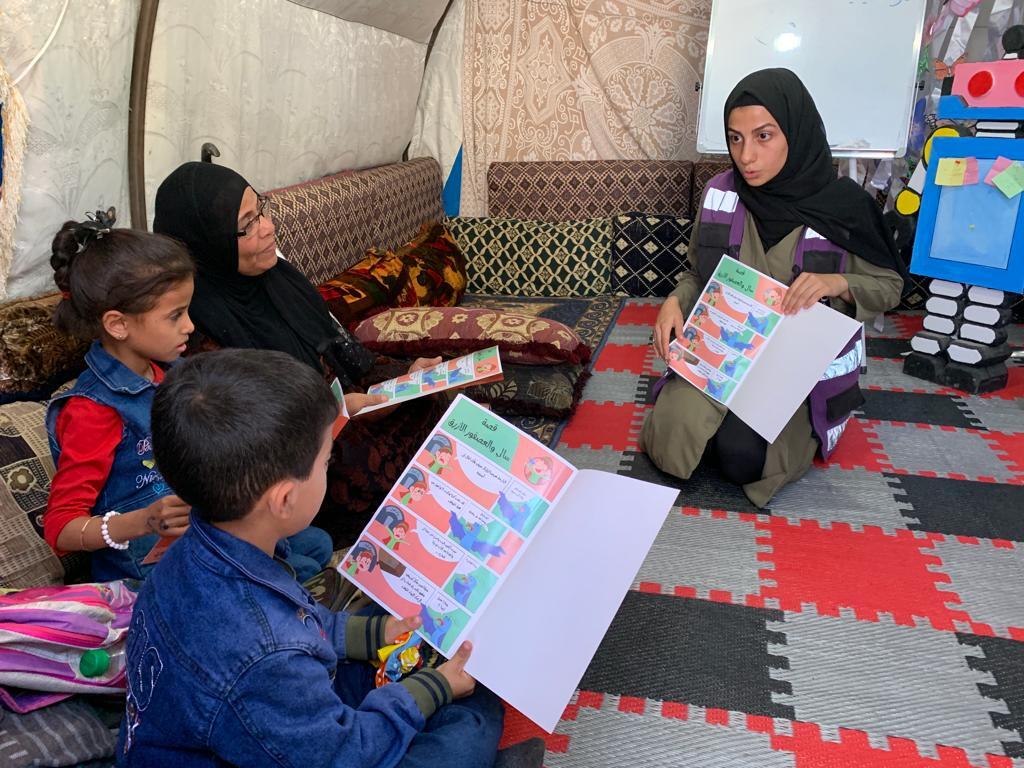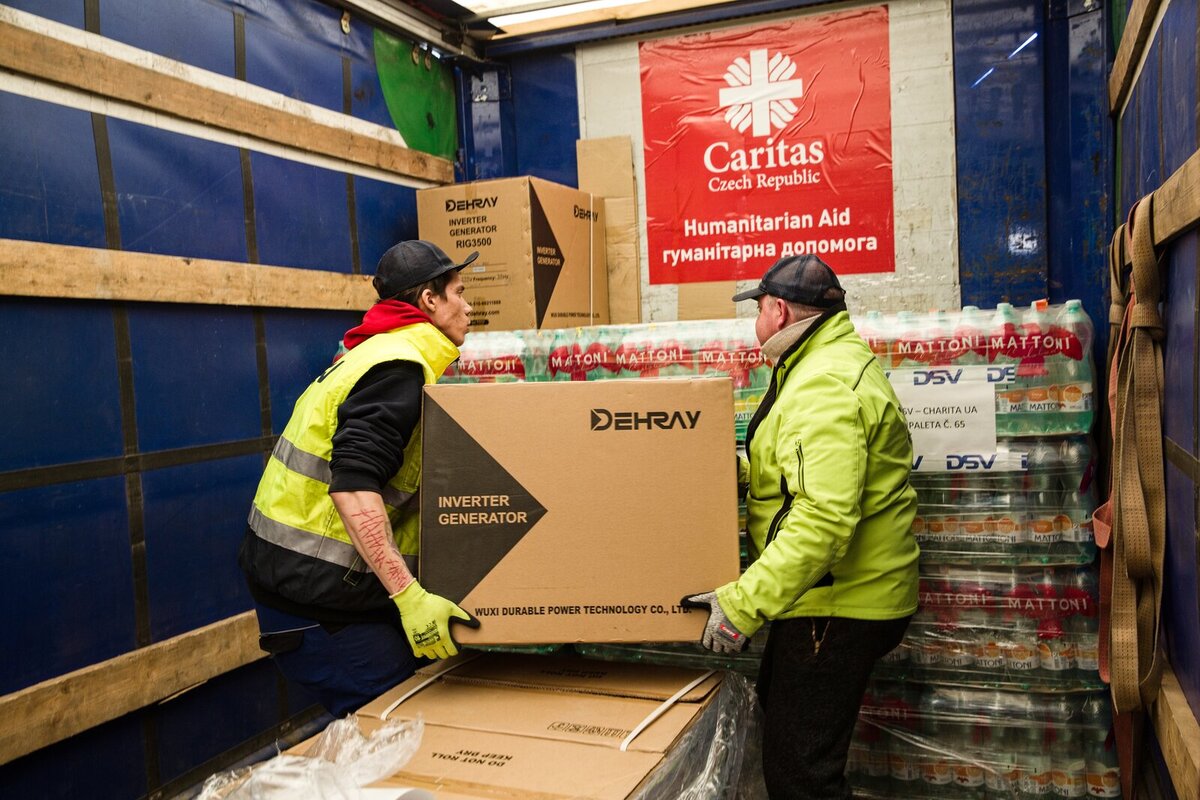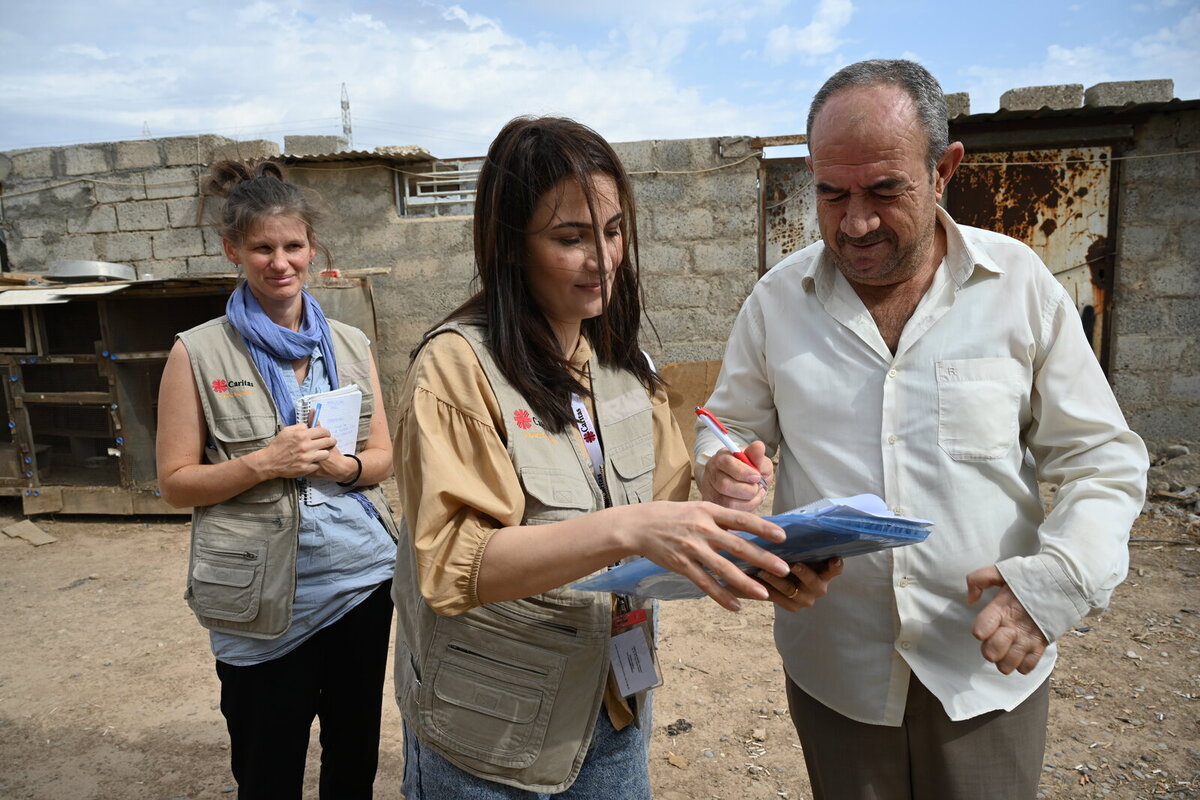Volunteers work as a bridge connecting different cultures, generations and backgrounds. They choose to dedicate their time to helping and supporting communities, especially the most fragile ones. They are often first responders during crises, providing immediate assistance, medical help, and shelter. Why are volunteers essential in humanitarian and development aid, and why must their help be organised?
How can volunteers help in critical and disaster situations?
Volunteers are necessary for humanitarian and development aid. In disaster situations, it is essential that help reaches affected people as fast as possible so volunteers can provide humanitarian assistance. Volunteers can be helpful in many ways; apart from distributing humanitarian aid, they can contribute to cleaning up and rebuilding, setting up emergency shelters, distributing food and water, and supplying child care. They can provide medical assistance (if trained as medical volunteers) and give mental health support.
When working in their home countries, volunteers can assist refugees in integrating into the new cultures, helping them with the language and the more complex administrative tasks. They can also raise awareness about important issues, write articles, help organise events, and collect donations.
Why do volunteers thrive in organised groups?
Trying to help out is always admirable, but volunteers must operate in an organised setting. Random acts of kindness may cause harm if not led by an organisation. For example, when a natural disaster or war occurs, it is necessary to deliver humanitarian aid quickly and effectively. But often, many people travel to the affected locations by themselves to provide help, only to block the roads and prevent medical and rescue teams from reaching the people in need.
However, when volunteers are organised, they know precisely what to do in a crisis situation. Whether they should distribute humanitarian aid and where, or if they should be packing and sorting the items sent to distribution centres or answering phone calls from people who want to help.
When volunteering is well-organised, it can significantly and positively impact many more people. It is important to make sure that all volunteers know their roles and responsibilities when providing help to people in need.
Volunteer programmes that seem chaotic or lack direction could potentially lose the trust of the local communities and contributors. Proper training of the volunteers on the place and the population they are going to assist is going to be the easiest way to avoid any troubles.
How you can start volunteering with Caritas Czech Republic
Are you also interested in volunteering? With Caritas Czech Republic, you can do it both abroad and in Prague. You will be able to experience new cultures and strengthen your skills under the guidance of professionals.
Our organisation offers the opportunity to volunteer in different countries around the world. Through the EVOCA (European Volunteers for Caritas) programme, you can become a volunteer and join one of the international branches of Caritas Czech Republic, either in Iraq, Georgia, Mongolia, or Zambia. This will allow you to experience new adventures and learn a great deal about life in a different part of the world. Young individuals from all around Europe who wish to participate in development cooperation and humanitarian relief while gaining new professional experience are welcome to apply for the programme. The duration of the volunteering programme ranges from 9-10 months. We seek volunteers for PR, finance, administration, project management or environmental protection.
If you are not ready to move abroad or have little free time but still want to make an impact, we are also looking for volunteers for our office in Prague. You can help with translating texts from English to Czech, or other communication or administrative tasks.
Volunteering is beneficial in many ways, which confirms our colleague Jana Žilková, who now works as a country director at our office in Mongolia, and who also started as a volunteer:
“Volunteering opportunities made me the person I am today. It is impossible to express it differently. All the occasional, short-term and long-term opportunities I have taken in the last 16 years have shaped me and opened more doors than I could have imagined”, says Jana Žilková.
If you want to learn more and experience working in a non-profit organisation, consider submitting your application for an internship at Caritas Czech Republic. It is especially suitable for people who want to learn more about humanitarian and development aid work and want to help change the lives of people in need. Hands-on engagement will teach you valuable skills and contribute to meaningful initiatives that drive positive change.
One of our previous interns, Denise Gislimberti, shares her experience about working at the Humanitarian Aid and International Development Department of Caritas Czech Republic: “Everyone on the team was very supportive. They gave me the opportunity to explore things on my own. Of course, I had a lot of responsibility, but I also had some freedom to do things my way. I appreciate the trust that they had in me. I felt encouraged” says Denise Gislimberti.
Embracing the volunteers’ contribution on the International Volunteers Day
On December 5, Caritas Czech Republic wants to join the International Volunteers Day celebrations to highlight the power of this extraordinary force. We are incredibly grateful for all our volunteers and interns who enable us to help even more people in need.
Anyone interested in joining us to support people in disadvantaged areas is welcome to apply and join our team.
Donate volunteer training
Volunteers are indispensable in helping others, especially in areas affected by war or natural disasters. Donate a volunteer training and ensure that volunteers' assistance to disaster victims is professional and effective.













